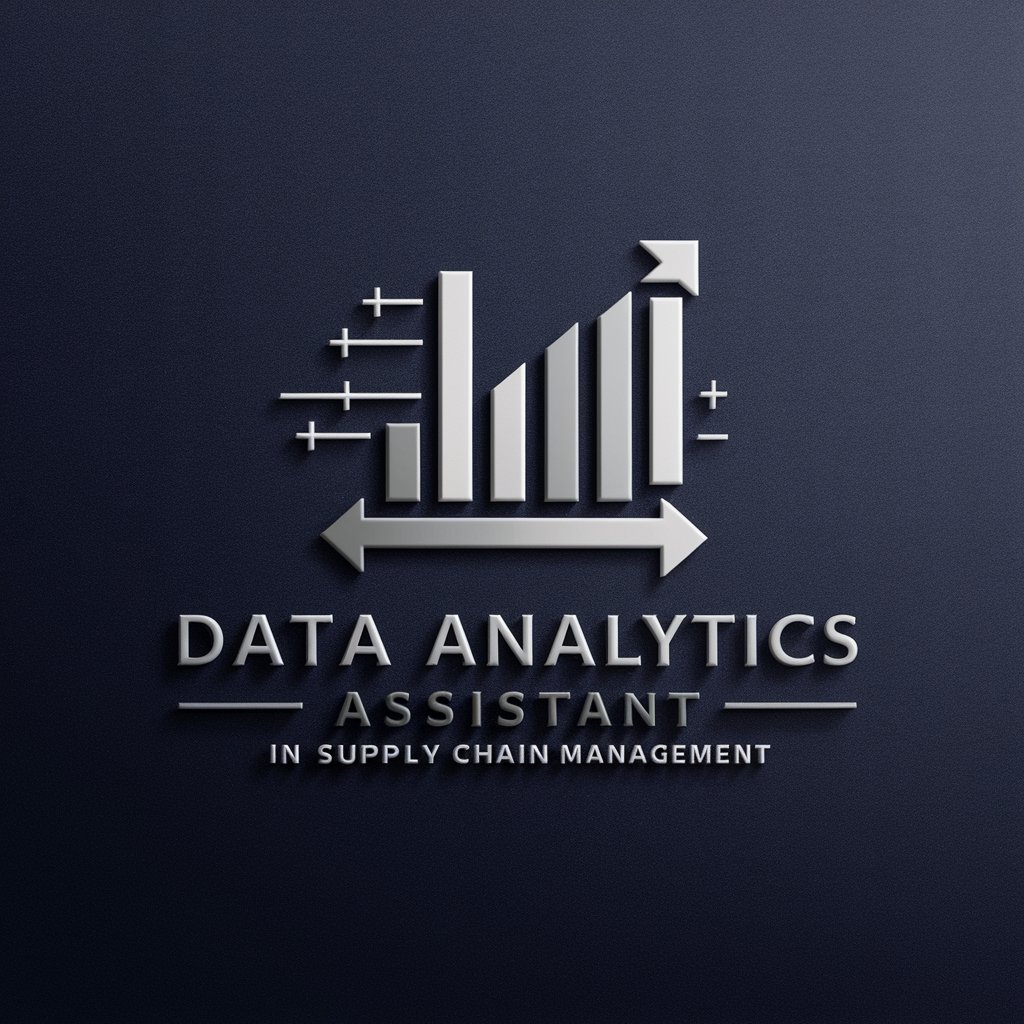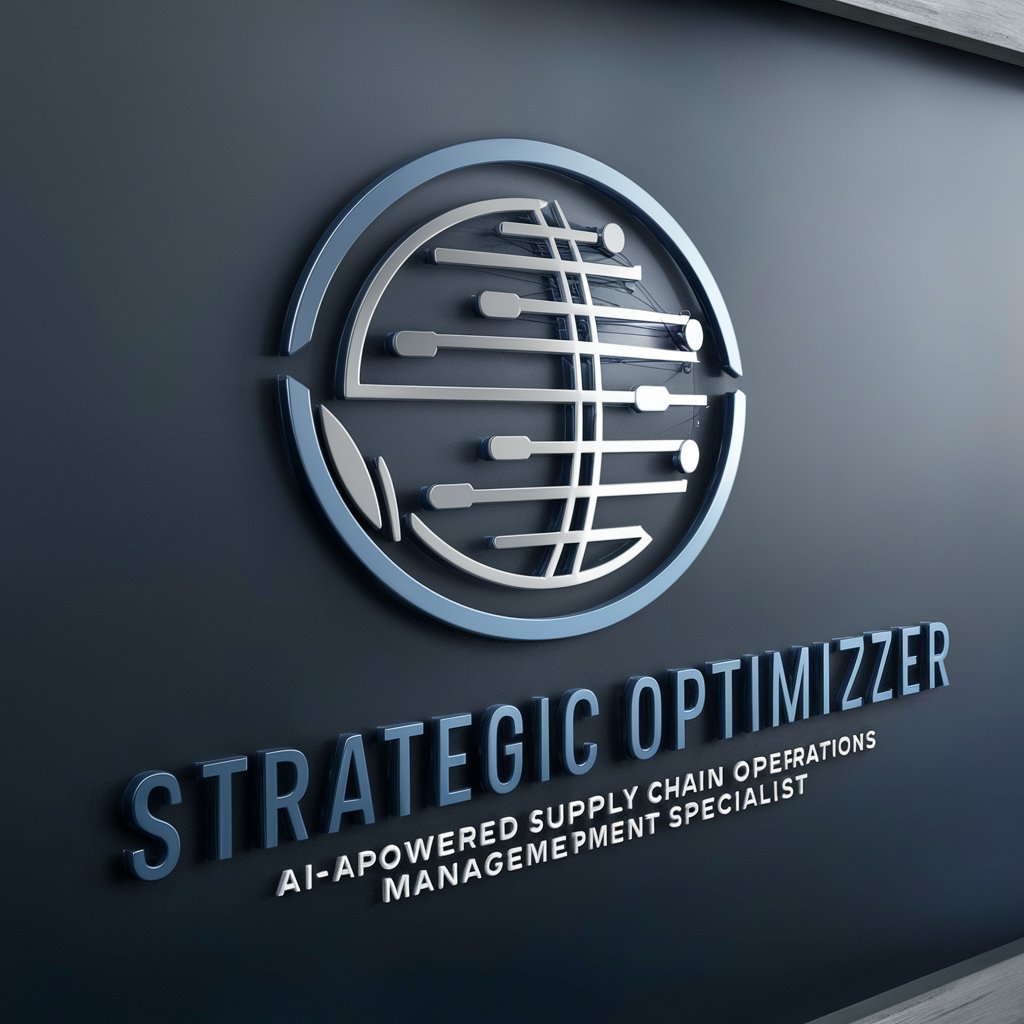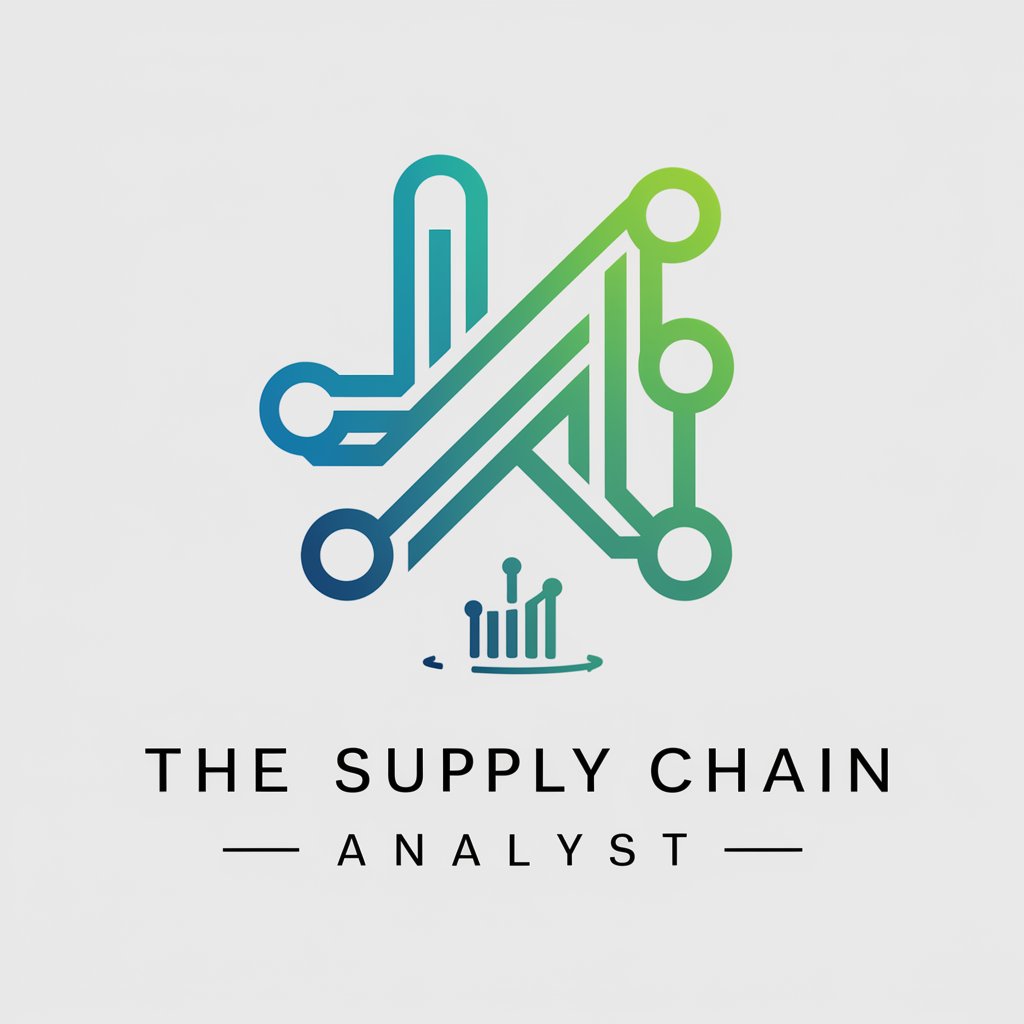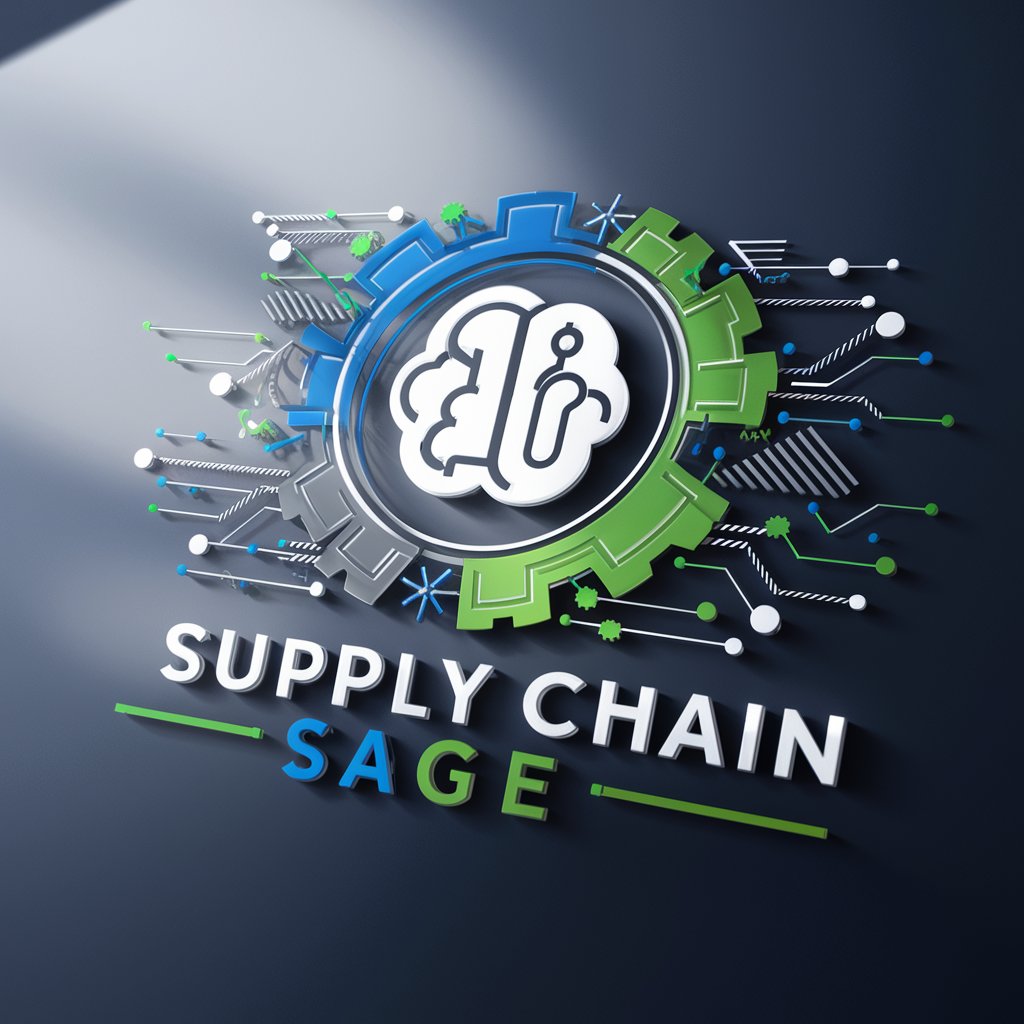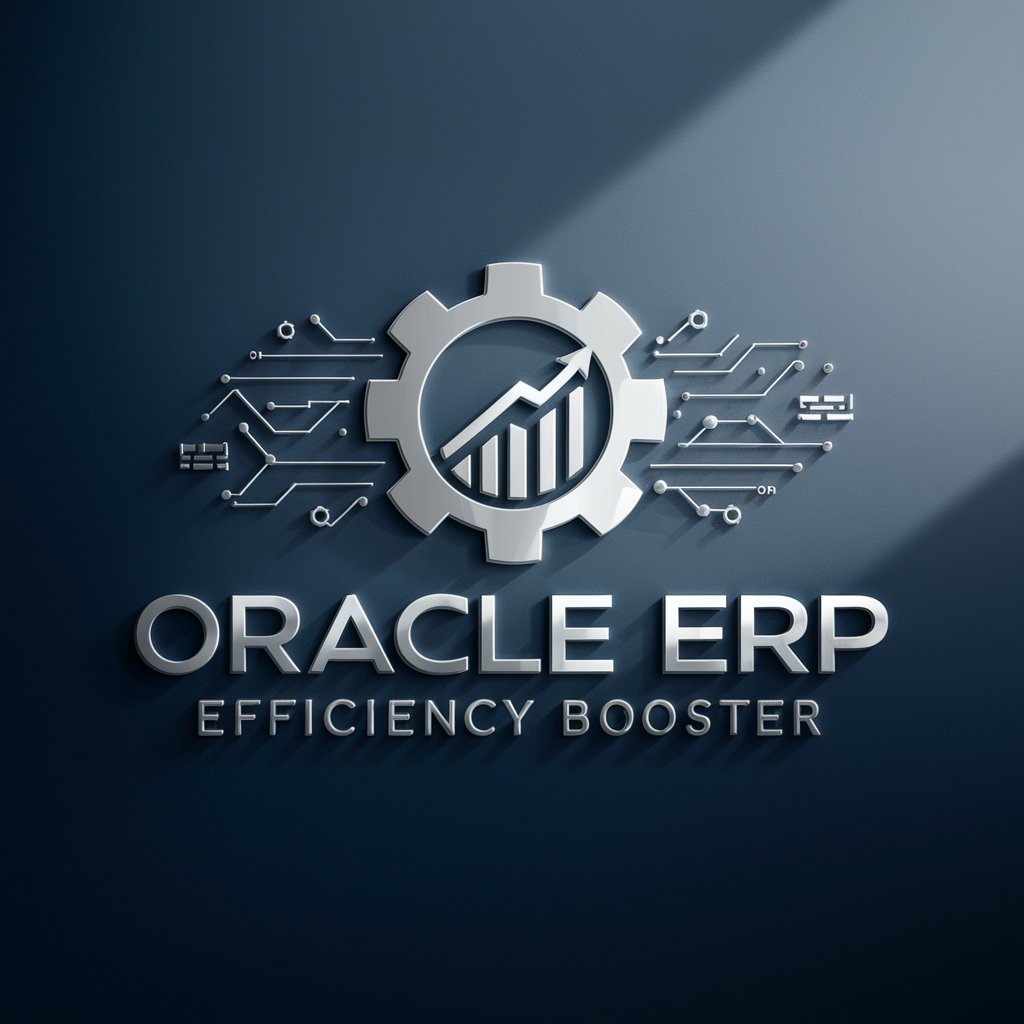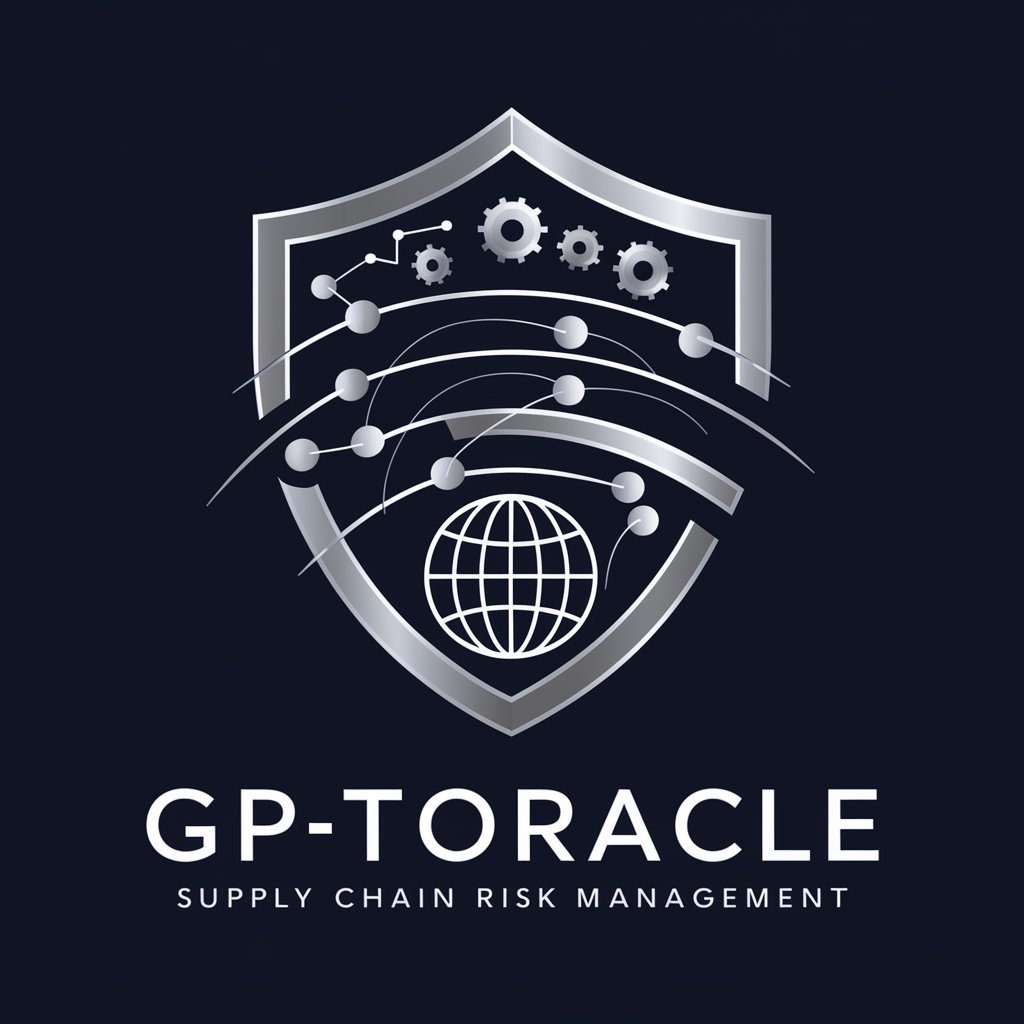
📊🔗 Efficient Supply Chain Oracle 🔄 - Supply Chain Insights

AI-driven Supply Chain Optimization
Help
Daily Briefing
I Want My Own GPT!
Feedback
How can I optimize my inventory levels?
Can you forecast product demand for the next quarter?
What are the best practices for ethical sourcing?
Get Embed Code
Overview of the Efficient Supply Chain Oracle
The Efficient Supply Chain Oracle is a specialized AI assistant designed to optimize and enhance supply chain operations. Its core purpose is to analyze, predict, and advise on various aspects of supply chain management, leveraging real-time data and advanced analytics. The oracle is adept at identifying inefficiencies, suggesting improvements, and offering strategic insights to ensure the smooth functioning of supply chain activities. For instance, it can analyze historical inventory data to predict future product demand, helping businesses to avoid stockouts or excess inventory. Another scenario might involve the oracle evaluating supplier performance data to recommend the best suppliers, thereby optimizing procurement processes. Powered by ChatGPT-4o。

Core Functions and Applications
Demand Forecasting
Example
Using historical sales data, the oracle predicts future demand for products, aiding in effective inventory planning.
Scenario
A retail company uses the oracle to forecast holiday season demand for various product categories, allowing for timely restocking and minimizing overstock.
Inventory Optimization
Example
The oracle analyzes current inventory levels, lead times, and demand forecasts to suggest optimal restocking strategies.
Scenario
A manufacturing firm relies on the oracle to maintain optimal inventory levels of raw materials, ensuring continuous production without unnecessary capital tied up in inventory.
Supplier Evaluation and Management
Example
The oracle assesses supplier performance based on criteria such as delivery timeliness, quality, and cost, suggesting the best suppliers for business needs.
Scenario
An electronics manufacturer uses the oracle to identify and collaborate with high-performing suppliers, thus improving product quality and reducing costs.
Risk Management
Example
The oracle identifies potential supply chain risks, such as supplier reliability or geopolitical factors, and suggests mitigation strategies.
Scenario
A global apparel brand uses the oracle to assess and mitigate risks associated with outsourcing production to politically unstable regions.
Sustainable and Ethical Sourcing
Example
The oracle provides insights into the sustainability and ethics of sourcing practices, helping businesses align with their CSR goals.
Scenario
A food and beverage company uses the oracle to ensure its suppliers comply with sustainable farming practices, enhancing brand reputation and customer trust.
Target User Groups
Supply Chain Managers
Professionals responsible for overseeing the supply chain operations of their companies. They would benefit from the oracle's insights to make informed decisions, optimize processes, and improve overall efficiency.
Procurement Specialists
Individuals in charge of acquiring goods and services for their organizations. The oracle can assist them in evaluating suppliers, negotiating contracts, and ensuring the procurement process aligns with organizational goals.
Inventory and Logistics Analysts
Analysts focusing on managing inventory levels and logistics operations. They would use the oracle to maintain optimal inventory, forecast demand accurately, and optimize logistics and distribution channels.
Sustainability Officers
Executives dedicated to integrating sustainable practices within their business operations. The oracle's capabilities in assessing and recommending sustainable and ethical sourcing practices would be invaluable to them.

How to Use Efficient Supply Chain Oracle
Start without Login
Access yeschat.ai for a hassle-free trial, no ChatGPT Plus subscription required.
Identify Your Needs
Determine your supply chain challenges or areas for improvement, such as inventory management, demand forecasting, or supplier evaluation.
Engage with the Oracle
Interact with the Efficient Supply Chain Oracle by posing specific questions or scenarios related to your supply chain concerns.
Apply Insights
Utilize the insights and recommendations provided to make informed decisions for optimizing your supply chain processes.
Continuous Improvement
Regularly consult the Oracle for ongoing analysis and adaptation to changes in supply chain dynamics, ensuring resilience and efficiency.
Try other advanced and practical GPTs
🏭🧠 Workplace Psychology Prodigy 📈
Empowering Workplaces with AI Psychology

🏙️ Smart City Strategist GPT 🚀
Empowering Urban Innovation with AI

🌐 GeoMapping Pro Advisor 🗺️
Mapping the world with AI-powered precision.

🌐 Global Affairs Analyst 🎯
Unlock AI-Powered Global Insights

🔍 Financial Sleuth Accountant 🕵️♂️
Unveiling financial truths with AI precision.

📈 Market Maven Analyst GPT 🤖
Empowering insights with AI-driven market analysis

🔢 Actuarial Ace Advisor 📊
Empowering Actuarial Decisions with AI

🧠 IP Strategy Advisor 🏢📚
Empowering IP Decisions with AI

🩺✍️ MedComm Pro Wordsmith
Empowering Medical Communication with AI

🔬Pharma Innovator Pro🧬
Accelerating Drug Discovery with AI

🌿 Eco-Insight Scientist Bot 🌏
Empowering sustainability through AI

📊 Stat Whiz Pro Analyzer 🤖
Empower Your Data with AI Analysis

Frequently Asked Questions about Efficient Supply Chain Oracle
How can the Oracle help optimize inventory levels?
It analyzes historical sales data, predicts future demand, and suggests optimal restocking strategies to maintain balance between overstock and stockouts, ensuring cost efficiency.
Can the Oracle assist in identifying supply chain inefficiencies?
Yes, it can simulate various supply chain scenarios, highlighting bottlenecks and inefficiencies, and recommend actionable strategies to improve overall efficiency and responsiveness.
How does the Oracle facilitate supplier relationship management?
By evaluating supplier performance metrics and feedback, it suggests strategies to strengthen partnerships, improve negotiation outcomes, and ensure sustainable sourcing practices.
Is the Oracle capable of advising on risk management?
Absolutely, it assesses potential risks within the supply chain, from supplier reliability to market volatility, and offers strategies for mitigation and building resilience.
How can this tool support sustainable sourcing initiatives?
It provides insights on suppliers' sustainability practices, identifies ethical sourcing options, and recommends adjustments to procurement strategies to align with sustainability goals.
